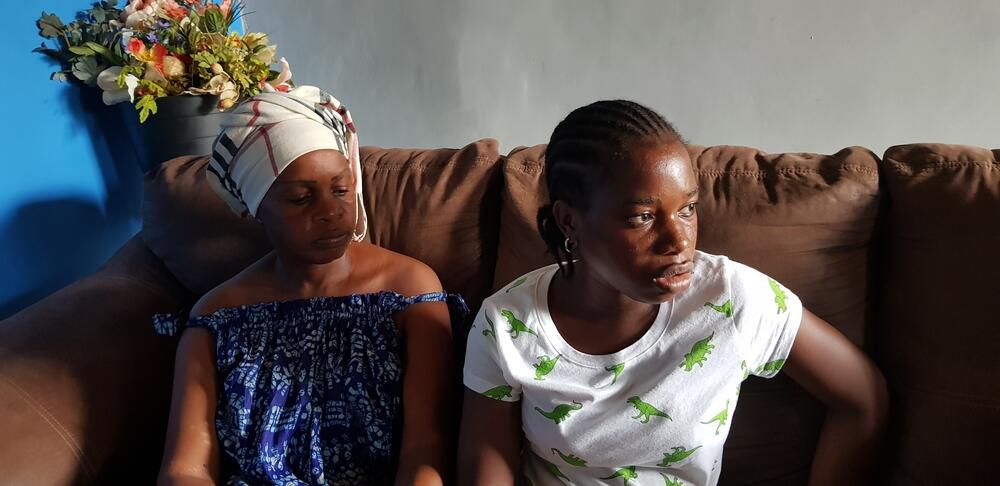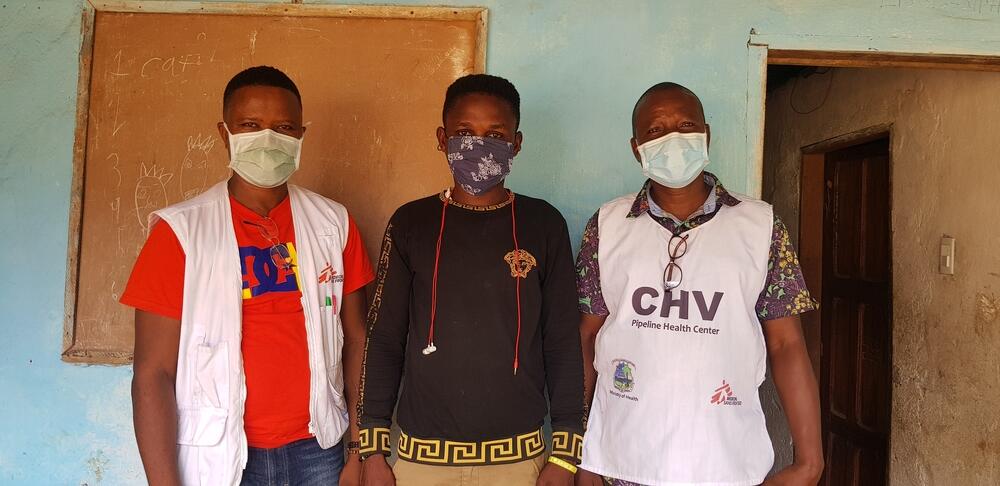Epilepsy: Millions cut off from care for the world’s most common neurological condition
Epilepsy is the world’s most common neurological disorder. However, for millions of people worldwide – living with the condition outside of a high-income country – access to treatment is extremely limited.
In low-resource countries such as Liberia, people with epilepsy face many challenges. The disease often remains undiagnosed, untreated or misunderstood, and many families turn to traditional or religious healers in search of a cure.
Amuchin Nango was nine years old when he suffered a head injury in a bicycle accident and began experiencing seizures – falling to the ground, jerking uncontrollably, even biting his tongue.
“His family got so confused and did not know what to do,” explains Abraham Kollie, a psychosocial worker with Médecins Sans Frontières / Doctors Without Borders (MSF) in Liberia.
“At some point, the family believed it was spiritual, like witchcraft. He was taken to so many traditional healers in Liberia and Sierra Leone, but the treatments could not yield any good response.”
At school, Amuchin suffered repeated seizures, and some of his classmates made it clear they did not want him there, perhaps thinking it was a contagious disease.
“Even the principal had problems with it,” Amuchin recalls. “I told my mother, no need for me to attend there.”

Help us prepare for the next emergency
Explained: Epilepsy
Epilepsy is a chronic disease of the brain characterised by recurrent seizures, varying from brief involuntary movements to severe convulsions. Seizures can be debilitating and dangerous for the person experiencing them as well as troubling to those around them.
The condition is the world’s most common chronic neurological disorder, affecting an estimated 50 million people according to the World Health Organization.
There may have a variety of causes, including complications during childbirth or infections that affect the brain, however, sometimes the cause cannot be determined.
It was only in January 2018 – eight years after his symptoms started – that Nango found the help he needed.
Months earlier, MSF had started providing epilepsy and mental health treatment in collaboration with the local healthcare facilities in the capital Monrovia, and other areas of the wider Montserrado County.
Amuchin’s family first learned about these new services at a community meeting organised by MSF. Soon after, Amuchin came with his family to Pipeline Health Center in Paynesville, where he was screened by a mental health clinician and eventually diagnosed with epilepsy.
A neglected crisis
“Around 80 percent of people with epilepsy live in low and middle-income countries, and almost three-quarters of them do not receive the treatment they need,” explains Léonard Nfor, a neurologist who works with MSF in Liberia
“In Africa, the prevalence of this disease is very high and qualified personnel are lacking. We must therefore find a system where epilepsy can be treated despite the absence of specialists in the disease.”
In Liberia, MSF partnered with the Ministry of Health in Montserrado County to train and supervise mental health specialists at five health centres. The team now diagnose and treat epilepsy and psychiatric disorders with guidance from expert MSF staff such as Léonard.
Medications play a key role in controlling symptoms such as epileptic seizures, while counselling also helps patients understand how to manage their condition.
At the same time, psychosocial workers and community health volunteers spread the word that treatment is available, working with families and communities to reduce the social stigma that many patients experience.
The effort has grown since 2017 and now provides treatment to more than 1,200 patients with epilepsy and nearly 600 patients with psychiatric disorders.
Focusing on inclusion
Amuchin’s experience of dropping out of school is far from unique. More than half of MSF’s epilepsy patients are school-age children, yet a majority do not attend their classes.
MSF has found that social stigma is the primary reason why about 10 percent of these children have dropped out, while other reasons include financial hardship or poor health.
After Amuchin started on treatment for epilepsy, it still took a concerted effort to help him return to school. However, two years ago, he graduated from high school, and he is now proudly working as a junior high school teacher himself.
He spreads the word that epilepsy treatment is available and has encouraged other people with seizures to seek out treatment. His symptoms are now well controlled by medication.
“After intensive awareness-raising on epilepsy with students and administrative staff, Amuchin was finally accepted back in school,” says Abraham.
“And, our psychosocial team continues to work with Mr Nango and his family through home visits, phone calls and the provision of psychoeducation at the school where he now works.”
To mark International Epilepsy Day 2022, which took place on 14 February, MSF psychosocial staff visited healthcare centres across Montserrado County to raise awareness about the condition.
While carrying out their visits, they wore t-shirts carrying a clear message designed to reduce the social stigma that Amuchin and others like him faced: the slogan “Epilepsy is not contagious”.
MSF and non-communicable diseases
Diabetes, high blood pressure and asthma are common conditions that may not seem like humanitarian emergencies.
However, when conflict, disaster or mass displacement leave patients cut-off from their care, the everyday can fast become life-threatening.

